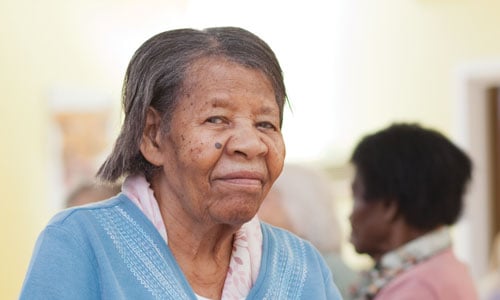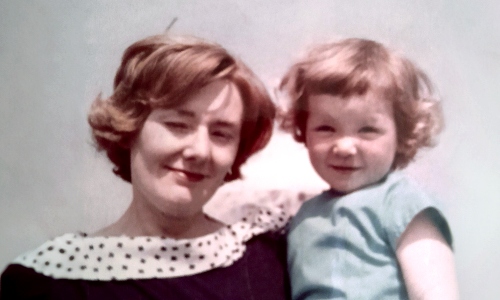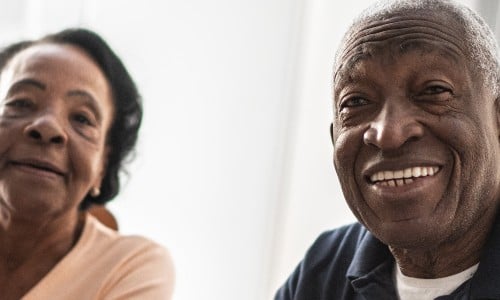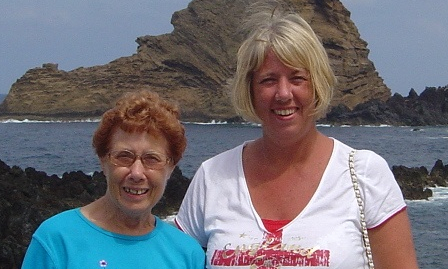Holocaust Memorial Day (27 January) is when the world honours and remembers the 11 million people murdered in the greatest act of genocide in modern memory.
This year’s theme is ‘ordinary people’ – a reflection on the ordinariness of those who perpetrated genocide, or stood against it; who were bystanders to it, or its targets.
“My family were just ordinary people living ordinary lives who were torn asunder by the actions and words of ordinary people,” explains Age UK Barnet volunteer Charlotte Balazs, whose Austrian grandparents were murdered by the Nazis. Together with her neighbour and survivor from Nazi Europe, Hedi Argent, she will spend the day remembering and honouring those who died, but more importantly, urging us all to reflect on how and why it happened.
Hedi was born in 1929 and lived in a modest flat in a suburb of Vienna, Austria with her lawyer father Max, and mother Lisa, a chemist by training. Though an only child, her extended family was very close, and her cousin Bubi (a German nickname meaning ‘little boy’) was like a brother. “We loved ice skating and swimming and board games. And we used to go to the park to play. We were a couple of happy kids, very ordinary.”
The end of childhood
But it was far from a carefree childhood. “I was four years old when a client of my father’s ran up to us on the street one day, and yelled, ‘I'm not going to pay a dirty Jew’,” recalls Hedi. “And then he spat at my father. And I cried.” Hedi’s father explained what antisemitism was.
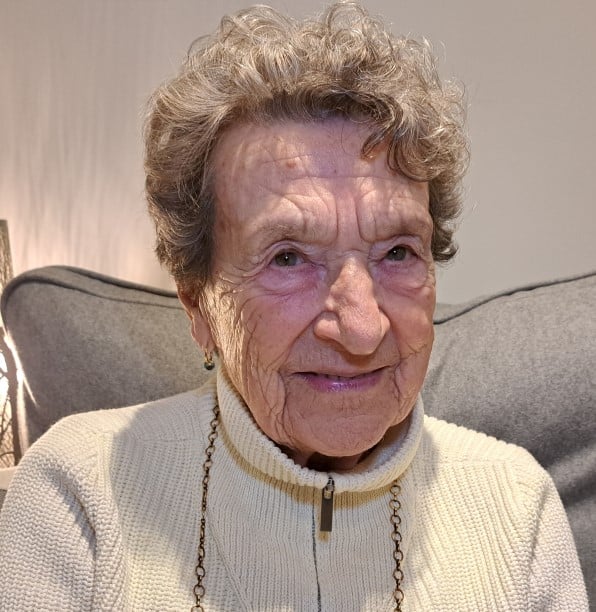
“[Antisemitism] was a new word for me. But I understood what it meant. Then on my first day of school I was called a 'dirty Jew' myself, and I learned what antisemitism felt like, as well as what it meant.”
Every Christmas when ‘St Nicholas’ visited the school, he would hand every child a gift – except Hedi. “He would say, ‘And now for the children who’ve been bad’, and it was only me. I was the only Jewish child in the class. He’d raise a birch rod, and he would pretend to hit me. And that made all the other children laugh. And worst of all, it made the teachers laugh.”
The anti-Jewish laws and backlash that accompanied Hitler’s annexation of Austria in 1938 were something Hedi remembers very well. “The shocking thing was that they came into force in Austria overnight, all of them. I was expelled from school the next day, and my father's office was taken over by a Nazi lawyer the first week and we were thrown out of our home the first month.”
They lost most of their possessions, and lived in fear of the knock on the door. “The Nazis used to regularly come and collect my father at night to go down and scrub the streets and clean public lavatories, very often with a toothbrush,” says Hedi. “How humiliating was that?”
The night of broken glass
On Kristallnacht (9-10 November 1938), Hedi’s father was in prison after speaking out against the Nazis in court. “My mother and I watched it from the windows of a second floor flat. There was just this incredible sound of glass smashing. It was eerie. And then we saw smoke and fire. My father was due to be released that day and we were getting phone calls from friends and relations to say that the men were being taken away. So of course, we were terrified.”
Unbeknownst to Hedi and her mother, an Austrian prison guard who knew Kristallnacht was coming had hidden her father, saving him from almost certain deportation. But time was running out for the family to find a safe place in another country, until a Jewish lawyer in West Hampstead, London, offered to act as a guarantor for their passage to England. When Hedi’s father was released from prison, they prepared to flee. They were only allowed to bring one suitcase each with nothing of value and two pounds seventeen and sixpence between them. Hedi brought with her a very small doll named little Susie and a book about a gang of child detectives called Heavens, My Shoes.
On the 44-hour journey through Europe, they had to change trains three times, and were searched head to toe each time. Then as the train crossed the border out of Germany, those at the front started shouting, ‘Death to Hitler’. “We were at the back, terrified that they’d stop the train and we’d all be shot,” says Hedi.
Refuge at last
Hedi’s family settled in Hertfordshire in 1939, where her parents got jobs as domestic servants, in line with immigration rules.
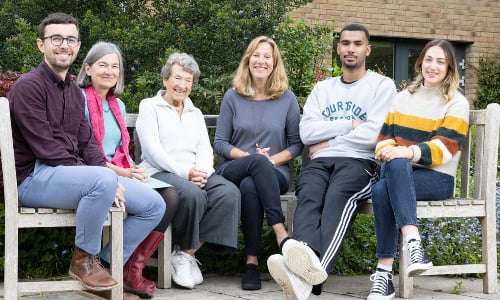
“They traded safety for everything they knew, and accepted they would always be refugees, and always be outsiders.”
After the war, her parents wrote to the Red Cross hoping to find their extended family. They found out that most of those left in Europe had been murdered during the Holocaust. Bubi and his parents had been trapped when war broke out and sent to Auschwitz where Hedi’s aunt was gassed. Bubi was made a slave labourer, but by the time of liberation was one of thousands of ‘half-alive bodies’ who’d endured a death march to Gunskirchen concentration camp. He was taken to a nearby hospital by the Americans and died there one day after liberation and eight weeks before his 17th birthday.
Keeping our history alive
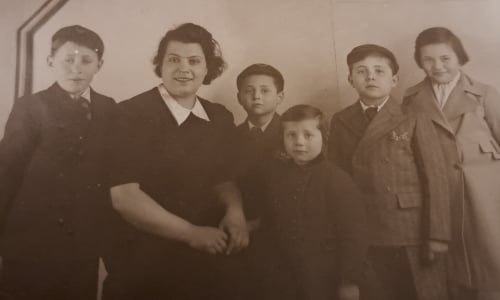
Charlotte, 69, like many descendants found her mother’s flight from Austria after its annexation – the Anschluss – was never discussed.
Born in 1911, her mother had left Vienna for England after being sacked as a bookkeeper. She sponsored her three nephews and two nieces to join her, and though three of her siblings survived, her parents and elder brother were deported to Riga and shot after the borders closed.
“I feel very strongly that these stories have to be kept alive and acknowledged,” says Charlotte.
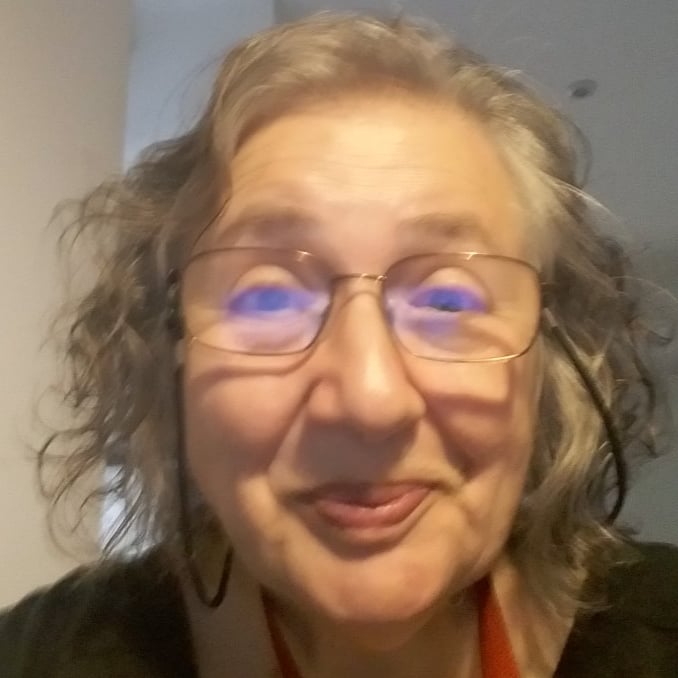
“Giving back and honouring is important – and in a way volunteering at Age UK Barnet is part of carrying on my mother’s work. I am so proud of her.”
Hedi, who has two daughters and three grandchildren, calls herself one of the “lucky ones”. She keeps the light of her family’s history alive in talks to schools and spoke at the Welsh Parliament this week, accompanied by Charlotte, to mark Holocaust Memorial Day. She hopes her testimony will have the same impact as the famous quote from Eleanor Roosevelt, who reflected: “I hope in future we will remember there can be no compromise of any kind with what we know is wrong.”
Charlotte’s message this year is simple: “We're all ordinary people trying to get by. Be kind to one another and do no harm. Do good and try to be happy.”



